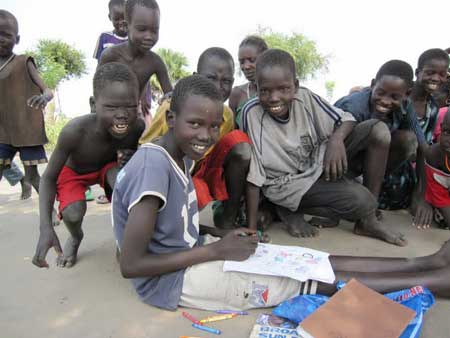
"The Obama administration must recognize that the NCP has effectively driven the disputes over thereferendum law, thrown up obstacles and unreasonable demands, and skillfully manipulated the process in order to inflame internal SPLM dispute."
Download the Activist Brief (PDF) >>
One month after the release of the Obama administration’s Sudan policy, the situation has further deteriorated. Violence against civilians continues unabated in Darfur and in southern Sudan, and the ruling National Congress Party, or NCP, continues to act in bad faith and undermine lasting peace in Sudan. In Darfur, relief organizations clearly do not have access to large areas of Darfur, and those that do have access to vulnerable populations no longer publicize their assessments for fear of expulsion. The NCP is blocking the establishment of conditions for free and fair elections and seeks to undermine a self-determination referendum scheduled for 2011. Intercommunal violence in southern Sudan is increasing, with growing evidence that Khartoum’s divide and destroy policies are partly to blame.

Source: Maggie Fick / Enough Project
Black-out in Darfur. Although the Obama administration continues to call what is occurring in Darfur genocide, the reality is we don’t really know. And we don’t know because the NCP has effectively cut off all independent outlets for assessment, analysis, and publication of what is happening presently in Darfur. Relief agencies dealing with sexual violence have been expelled or forced to suspend their programs, so we no longer have independent means to assess the level and scope of rape as a war weapon, a critical instrument of genocide.
Does the NCP’s policy of sowing divisions within the South undermine peace in Sudan? Yes.
[pagebreak]IMPLICATIONS
- Multilateral asset freezes aimed at key members of the NCP who have enriched themselves as a result of the oil boom of the last decade in Sudan
- Multilateral travel bans that act as a scarlet letter on the shirts of key officials who aspire to be taken seriously internationally
- Multilateral enforcement of the U.N. Security Council’s arms embargo through the enhancement of the sanctions committee or another enforcement mechanism if the U.N. Security Council once again fails to discharge its duties
- Multilateral support to the International Criminal Court’s cases against key Sudanese officials, both in terms of existing indictments and a further expansion of the caseload
- Multilateral denial of debt relief that the NCP is aggressively seeking in the context of declining energy prices

